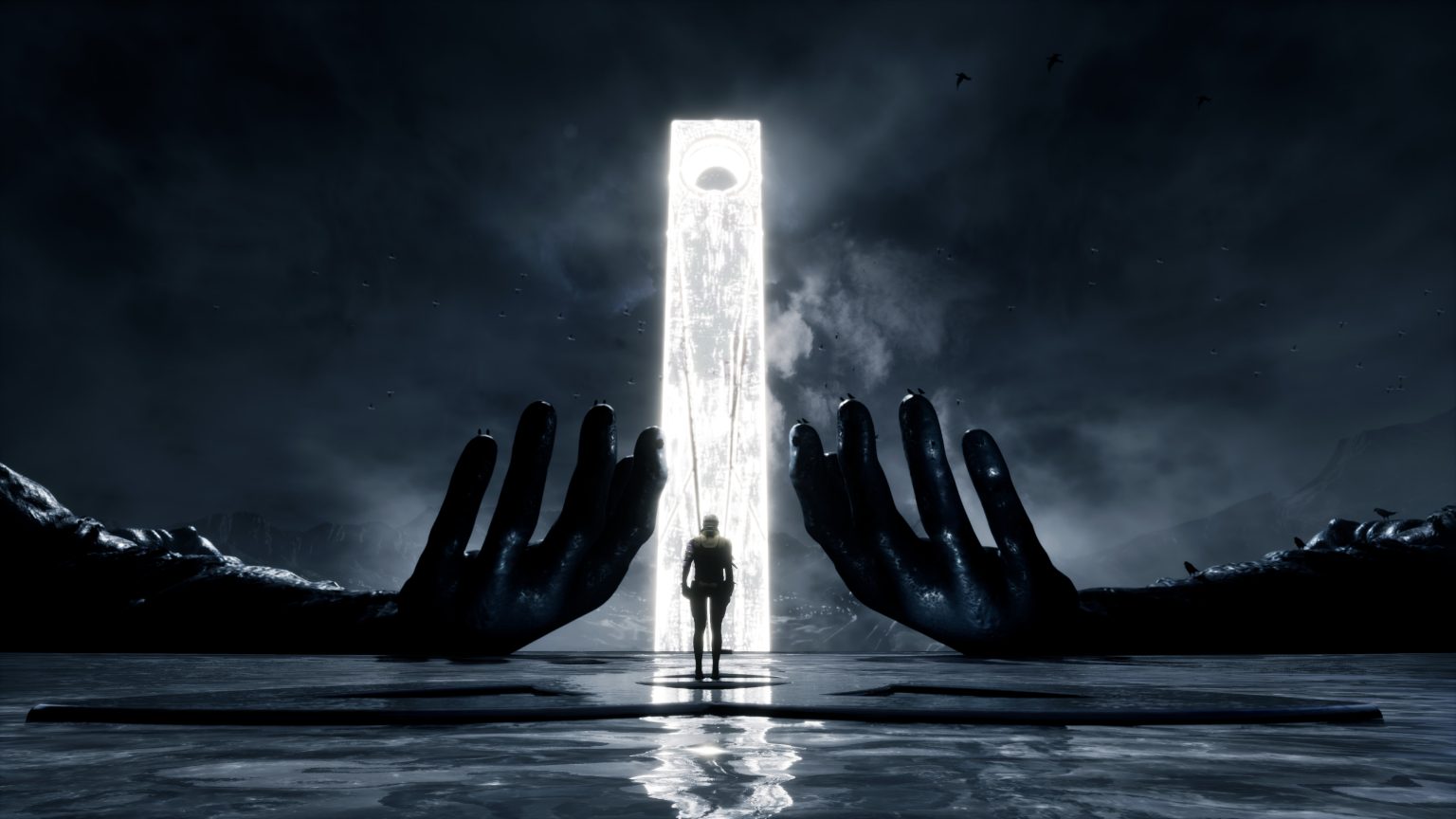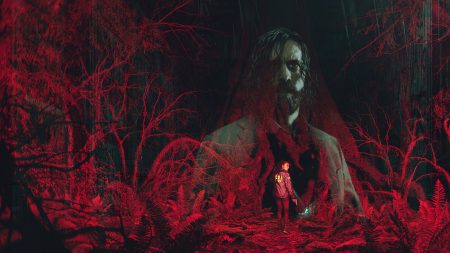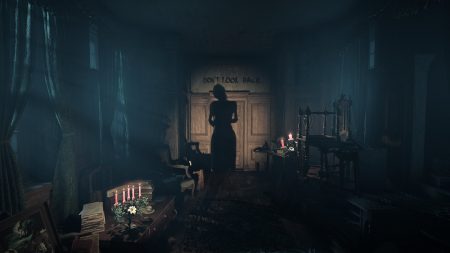David Lynch shaped my love for horror, cinema, and narrative in unmatched ways. Since his death in January, I have struggled to write. Recently, I’ve revisited his films (Eraserhead, The Elephant Man, Dune) at Alamo Drafthouses, as well as early episodes of Twin Peaks. I let these pieces of art continue to linger, sparks of light shining against dark backdrops.
I have also spent a lot of time thinking about how Lynch shaped my favorite media, from Alan Wake to Silent Hill. I have picked up my pen to write about these connections only to find myself at a loss for words. I have wanted to commemorate and celebrate Lynch.
I didn’t expect to find such memorialization enshrined in Pollard Studio’s KARMA: The Dark World. The game aesthetically captures a Lynchian vibe; it is a tapestry of dreamlike (at times, even surrealist) level design.
While KARMA nails the aesthetic, the narrative and writing leave a little to be desired. Although the game isn’t advertised as such, it is only half the story—a big cliffhanger means players will have to wait for a sequel for a more complete experience.

This Is But a Dream
Like Layers of Fear (2023), KARMA isn’t particularly terrifying. Rather, it depends on a bit of an unsettling atmosphere. The game’s narrative isn’t particularly subtle. Players take the role of protagonist Daniel McGovern, a Roam Agent for the Leviathan Corporation’s Thought Bureau. As a Roam Agent, McGovern navigates the minds of suspects.
What plays out is a series of Lynchian dreams by way of David Cronenberg’s body horror genre with a touch of Christopher Nolan’s Inception dream navigation. If that sounds like a lot, it is. KARMA doesn’t always have the narrative chops to pull all of these threads together perfectly in its 1984 East German setting (yes, your favorite novel from high school by George Orwell is not relevant here but is used regularly as a prop). Most NPCs from the bureau walk around with CRT televisions on their heads.
Its messiness, though, makes KARMA even more impressive and dreamlike. Its structure highlights its jagged edges. In this way, the game reminded me a lot of 2024’s brilliantly haunting Indika in its perfectly arranged imperfections giving way to a quieter, more meaningful experience.
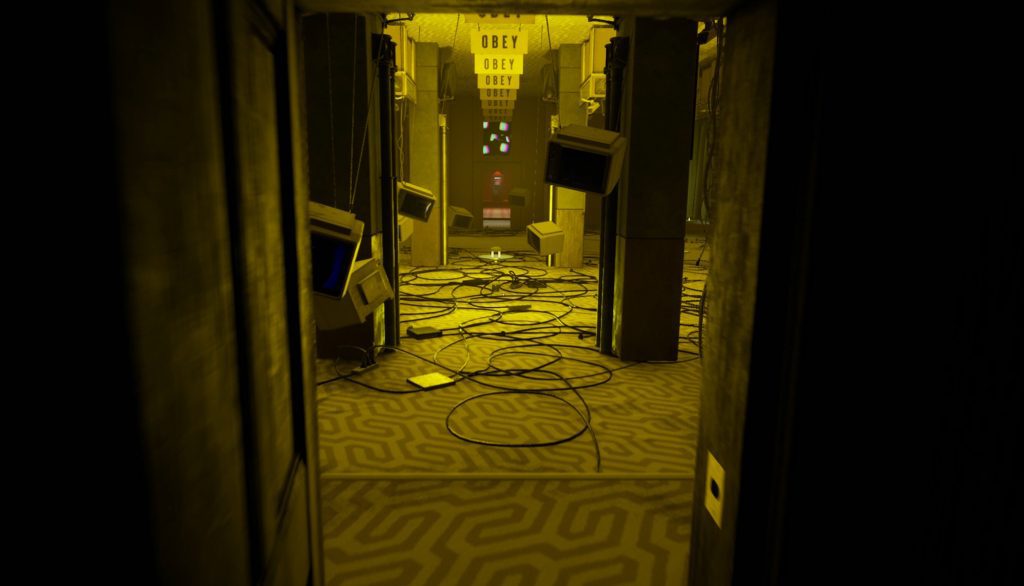
Puzzling Linearity
KARMA is a first-person walking simulator with puzzle elements. In this respect, the game does little to move the genre forward. Each level is very linear, regardless of if McGovern is navigating East Germany, the Office Corridors of the Thought Bureau, or the minds of suspects.
The game’s puzzles range from spatial cues—transforming rooms, moving mannequins, or revealing previously non-existent doors—to visual manipulation like using a camera to find otherwise invisible eyeballs.
These puzzles allow for some environmental storytelling, but like its overarching narrative, there is little subtlety. My favorite level in the game unapologetically replicates the Black Lodge (or the Red Room) from Twin Peaks. The level design presents a wonderful homage to the series and its creator while revealing aspects of one of the suspect’s self-image.
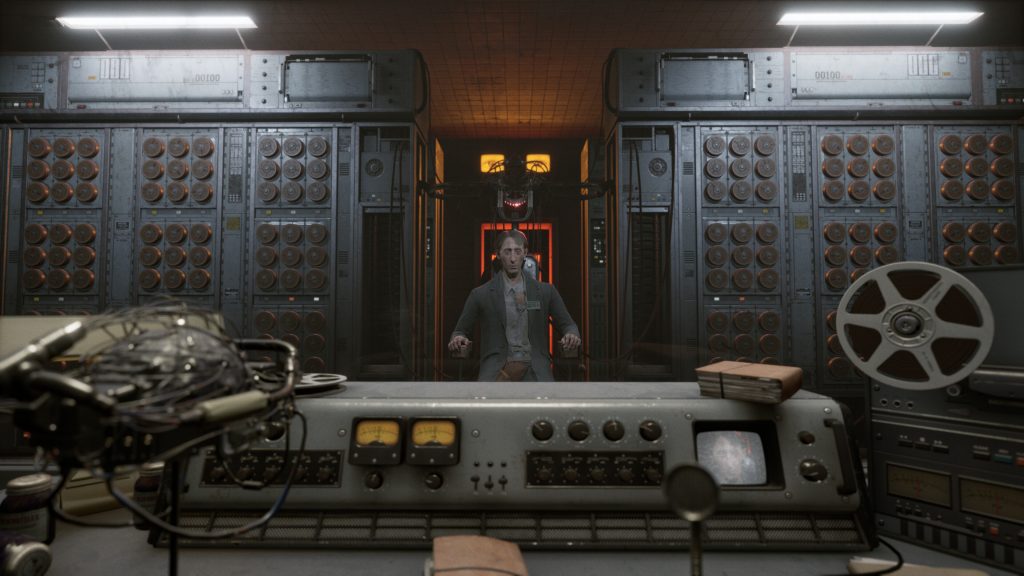
Further, puzzle boxes litter the game as worthwhile collectibles. These simple, elegant interactive collectibles proved to be some of my favorite challenges in KARMA.
Each level pulls McGovern between surreal vistas that either unravel KARMA’s larger mystery or individual obsessions. These linear paths all end in the same place—there are no choices in this story—which also means there isn’t a way to be “wrong” about how the reveals unravel.
The puzzles are approachable and immensely solvable. Their accompanying narrative similarly falls into place. Every step encourages sitting with the dystopian world McGovern and the Leviathan Corporation inhabit. These elements don’t so much build on each other as they maintain the vibe.
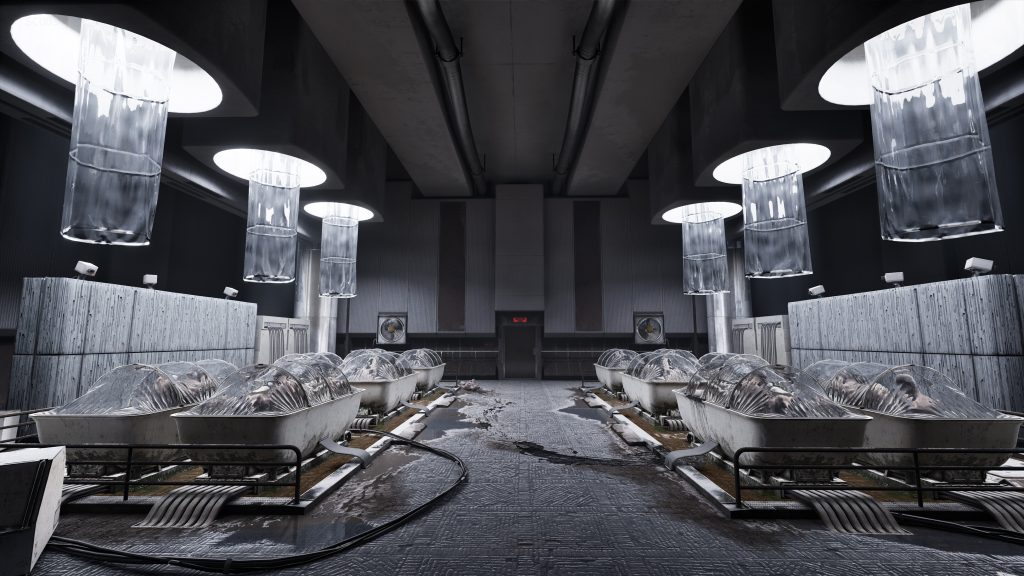
Sins for the Future
KARMA is a gorgeous, short game. Floating orbs, lingering eyes, bookshelves, and screens create brilliantly arranged, haunting spaces. I completed my playthrough in under five hours and felt like most moments in the game could hang in my office.
In this way, KARMA is both too long and too short. Some moments feel elongated, robbing emotional moments or potential scares of momentum. At the same time, Pollard Studio only really finds its groove with a level or area right on the cusp of its completion. Each time the level picks up, McGovern is thrust on to the next canvas.
This structural concern continues through the game’s finale. While I’m not sure that KARMA necessarily earns its final Control-esque twist, I arrived and left intrigued. Somewhere beyond merely paying homage, the game finds new footing on familiar ground. Just as things get truly interesting, the credits roll.
It’s hard not to compare KARMA to Hideo Kojima’s Metal Gear Solid V: Ground Zeroes. Is McGovern’s story simply a prologue to a larger story? Will what comes next feel more narratively aligned with Metal Gear Solid V: The Phantom Pain—incomplete, with haunting promise? The game’s ending hints at a more intriguing second part to this duology—a promised part two with suspiciously Control-like abilities, architecture, and character relations.
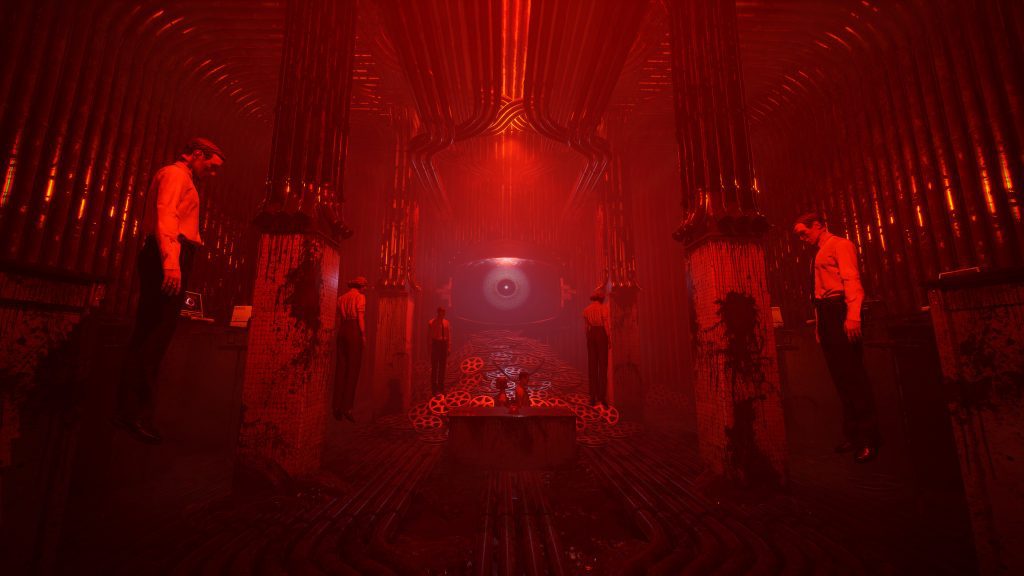
Final Thoughts
KARMA: The Dark World is a love letter to David Lynch. While its framing narrative is a little too straightforward, its dream sequences craft nightmarish spaces that linger in the player’s imagination. Aesthetically, the game is Lynchian horror—commenting on the world around it, the industry it inhabits, and the person playing.
KARMA won’t be for everybody, but neither are its inspirations. I hope to replay the game soon, revisiting the textual and puzzle box collectibles for additional hints at the future story that Pollard Studio seemingly wants to tell. I’m also excited to revisit its ending and sit with its final revelations.
Moreover, I hope the sequel to KARMA continues to honor and celebrate David Lynch’s legacy. One to which gaming as a whole owes quite a bit of credit and observance.
Score: 7.5/10
KARMA: The Dark World, developed by Pollard Studio and published by Wired Productions and Gamera Games, is available now on PC and PlayStation 5, with an Xbox Series X/S version coming soon. MSRP: $24.99. Version reviewed: PC.
Disclaimer: A review code was provided by the publisher.
Clint is a writer and educator based out of Columbus, OH. You can often find him writing about Middle English poetry, medieval games, or video games. He just finished a PhD in English at the Ohio State University. You can find his academic and public work at clintmorrisonjr.com.


